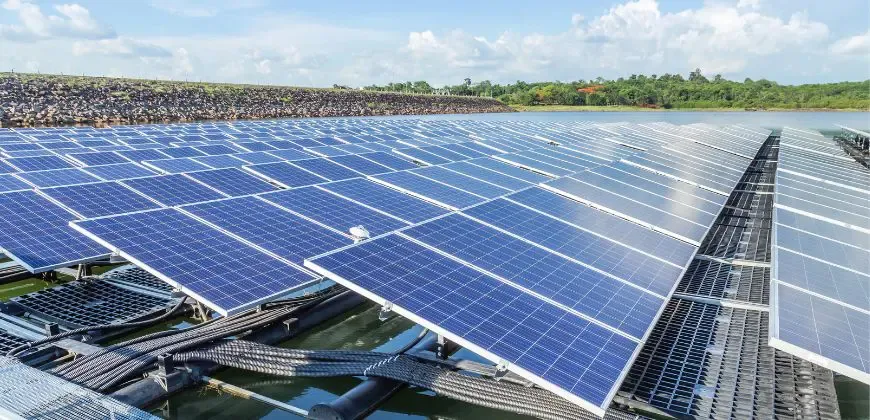Powering Mine Sites with Renewable Hydrogen
For the capstone project, Clean Energy Engineering student Umer Farooq evaluated the technical and economic viability of powering mine sites with renewable hydrogen – a solution that could significantly reduce a mine’s carbon footprint and allow for greater energy self-sufficiency.

Students in the Clean Energy Engineering program are required to complete a capstone project where they work directly with an industry partner to complete a technical and economic analysis of a clean energy project.
Umer Farooq collaborated with Bloom Energy (a leading solid oxide fuel cell manufacturer and microgrid solutions provider based in California) on a project to assess the techno-economy feasibility of using renewable microgrids to power remote mining sites.
“Canada has a large mining sector, and many mine sites are in off-grid locations, relying on trucked-in diesel fuel to meet their power and thermal requirements,” says Umer. “Bloom wanted to explore if their fuel cells could be used at these sites to help make the mines more energy independent. The goal of my capstone project was not to develop a complete power plant design, but rather to deepen the understanding of the current available technology and evaluate how it can be used by mine operators to reduce costs and offset their carbon emissions.”
Umer investigated the feasibility of producing hydrogen using water electrolysis powered by solar energy and/or a wind farm. The hydrogen would be captured and stored for use in Bloom’s fuel cells and then used to power a mine and meet its electric load requirements.”
His analysis focused on a mineral-rich area in Canada’s Northwest Territories where there are many mines in operation. He used publicly available data on the solar and wind resource and consulted with members of UBC’s mining department for information on a mine’s energy requirements. He fed this data into HOMER (software used to design renewable and hybrid microgrids) to arrive at an understanding of capital expenditures, net present value, life-cycle costs and sensitivity analysis of various scenarios.
“My analysis shows that we aren’t yet able to completely replace diesel power generation with renewables – the total cost of ownership for renewable energy production has not gone down to a point where you can just turn off the diesel engines and be good to go,” says Umer. “However, that doesn’t mean there isn’t value in making a shift away from fossil-fuel-powered energy generation. Even if we can bring the carbon footprint down by up to 50 percent, that’s a big difference.”
Umer notes that there are cost savings that come by displacing diesel with renewables. Diesel is an expensive fuel that requires expensive transportation and storage costs. He also points out that renewables have very low operating costs compared to diesel engines, so companies that pursue this route can anticipate lower operating and maintenance costs going forward.
He says the capstone project has been a very useful learning experience, enabling him to build his expertise in the hydrogen economy. With more than 15 years of experience in the oil and gas industry, Umer enrolled in the MEL in Clean Energy Engineering to help him make a shift into sustainable energy.
“When I was researching master’s programs in this area, it surprised me to see how few programs there are that focus on technology and technology applications,” he says. “The MEL in Clean Energy Engineering stood out because it has this focus. For professionals with industry experience, this degree is very useful. It’s not just academics – it’s more like a one-year workshop where you have opportunities to apply the tools you have from your professional background to new concepts and applications.”



